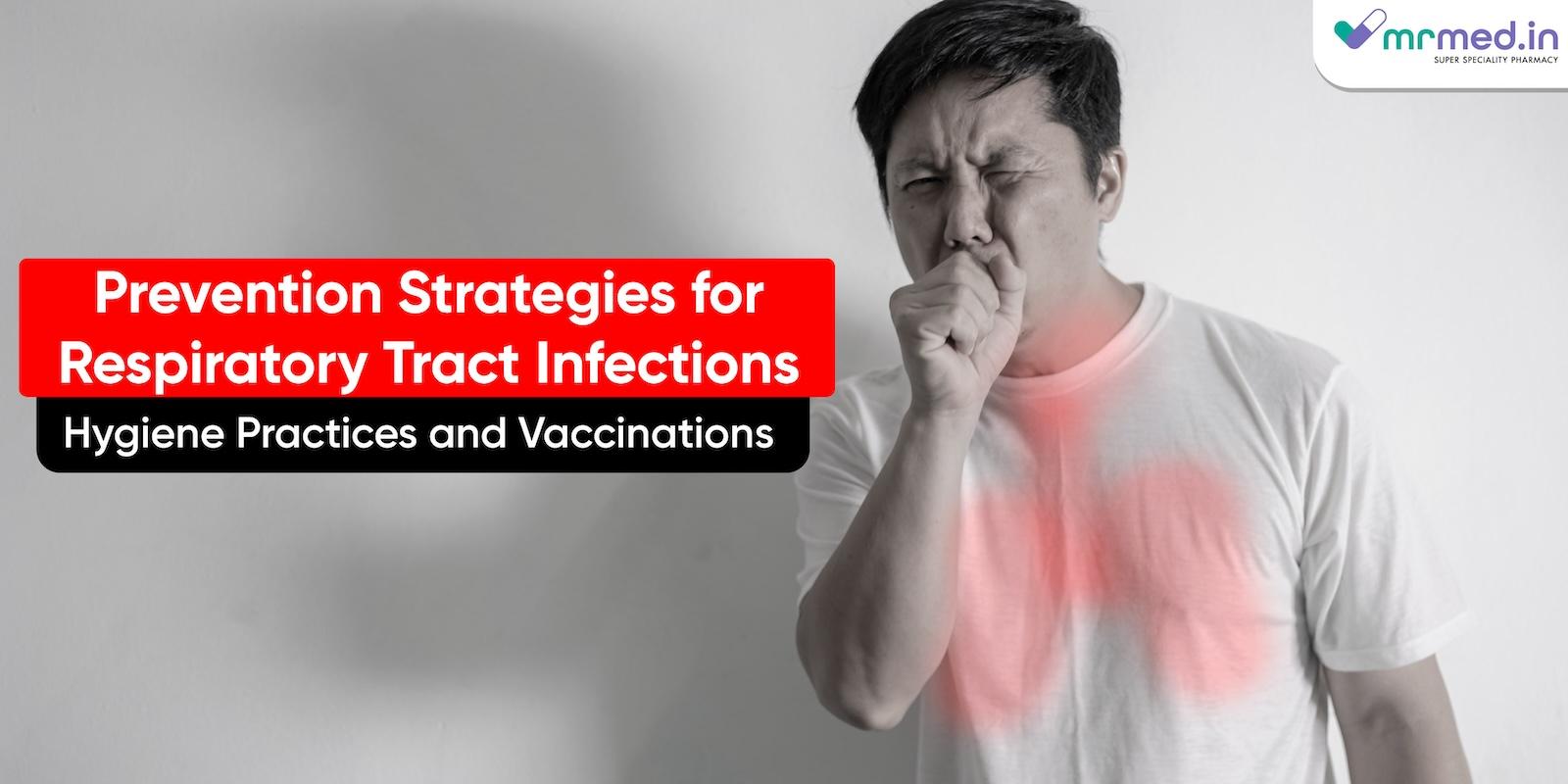Respiratory tract infections (RTIs) contribute to a significant challenge in healthcare settings since they give rise to an increased number of deaths and prolonged hospital stays in India. Hence, effective prevention strategies are important to safeguard the entire public health system. The National Guidelines for Infection Prevention and Control of India have provided some comprehensive strategies to mitigate the spread of these infections, focusing on powerful hygiene practices and the strategic use of vaccinations. Let us explore it in detail.
5 Preventive Strategies for RTIs in India
Here are 5 preventive strategies that are effective in preventing RTIs in India.
1. Hygiene Practices
1. Hand Hygiene:
Washing your hands with soap and water or using hand sanitizer kills germs that can make you sick. In places like hospitals, everyone, including doctors, nurses, and visitors, should clean their hands often to stop germs from spreading. Hospitals have soap, water, and sanitizer available and rules to make sure everyone follows hand-cleaning guidelines. Keeping hands clean helps prevent sickness and keeps everyone healthier.
2. Respiratory Hygiene and Cough Etiquette:
When you cough or sneeze, cover your mouth and nose with a tissue and then throw it away. If you are sick, wear a mask to prevent your germs from spreading to others. Healthcare workers should wear masks when taking care of sick patients, too. This helps keep everyone safe and healthy by stopping the spread of germs.
3. Environmental Cleaning:
It is really important to clean surfaces and equipment with germs on them, especially in places where sick people are. This includes things like doorknobs, bed rails, and medical tools.
To do this, we use special cleaning products and follow specific cleaning rules. By cleaning these things regularly and properly, we can reduce the risk of spreading germs. So, keeping everything clean helps keep everyone safer and healthier.
2. Use of Personal Protective Equipment (PPE)
The guidelines say that when healthcare workers go into the room of a patient who might have a respiratory infection, they should wear special protective gear called PPE. This gear includes gloves, gowns, and masks.
Wearing these things creates a barrier between the healthcare worker and any germs the patient might have. It stops the germs from touching the worker directly and lowers the chance of them getting sick or spreading the germs to others. So, by wearing PPE, healthcare workers stay safer and help keep everyone else safe too.
3. Vaccinations
1. Influenza Vaccination:
It is really important for healthcare workers to get a flu shot every year. This helps to stop the flu from spreading in places like hospitals and clinics. When healthcare workers get vaccinated, they protect themselves from getting sick with the flu. But it's not just about them; it also helps keep the people they take care of safe. Some patients, like older people or those with weak immune systems, can get very sick if they catch the flu. By getting vaccinated, healthcare workers reduce the chances of spreading the flu to these vulnerable patients. So, getting a flu shot every year helps keep both healthcare workers and patients healthier.
2. Pneumococcal Vaccination: For older people and those with long-term health issues, it's recommended they get a shot to prevent a serious type of pneumonia called pneumococcal pneumonia. This type of pneumonia can be really dangerous, especially for these groups.
Hospitals and clinics should make it easy for both patients and healthcare workers to get this vaccine. By doing this, they're helping to protect these vulnerable groups from getting sick with pneumococcal pneumonia, which can be life-threatening. So, getting this shot is important for staying healthy, especially for older folks and people with ongoing health problems.
4. Patient Education
It is really important to teach patients and their families about keeping clean, wearing masks properly, and getting vaccinations on time. We need to make sure they understand why these things are important for staying healthy.
To do this, we should give out clear information in different ways, like brochures, posters, and online videos. This helps people learn about hygiene, masks, and vaccines easily, so they can protect themselves and others from getting sick. So, by sharing this info in different ways, we're helping everyone stay safe and healthy.
5. Surveillance and Monitoring
Most of the patients are prescribed antibiotic medications like penicillin and cephalosporins like cefotaxime (Taxim 1gm Injection). While these medicines are intended to reduce infection, it is also important that overuse of these meditations can lead to antibiotic resistance. So, awareness of antibiotic resistance should be raised among the patients.
Also, keeping an eye on respiratory infections in hospitals helps us catch outbreaks early and see if our prevention plans are working. We do this by regularly checking how clean everything is, how many people have gotten their vaccines, and if everyone is wearing their protective gear correctly.
These checks help us make sure we're doing everything we can to stop infections from spreading. So, by keeping an eye on things and checking regularly, we're keeping everyone safer and healthier in hospitals.
The Final Thoughts
We can make hospitals safer by keeping things clean, wearing the right protective gear, and vaccinating everyone. These steps are part of a bigger plan to protect everyone—patients and healthcare workers. By sticking to these rules, we ensure hospitals are cleaner and healthier places for everyone to get better. Let us keep working together to keep our hospitals safe.
